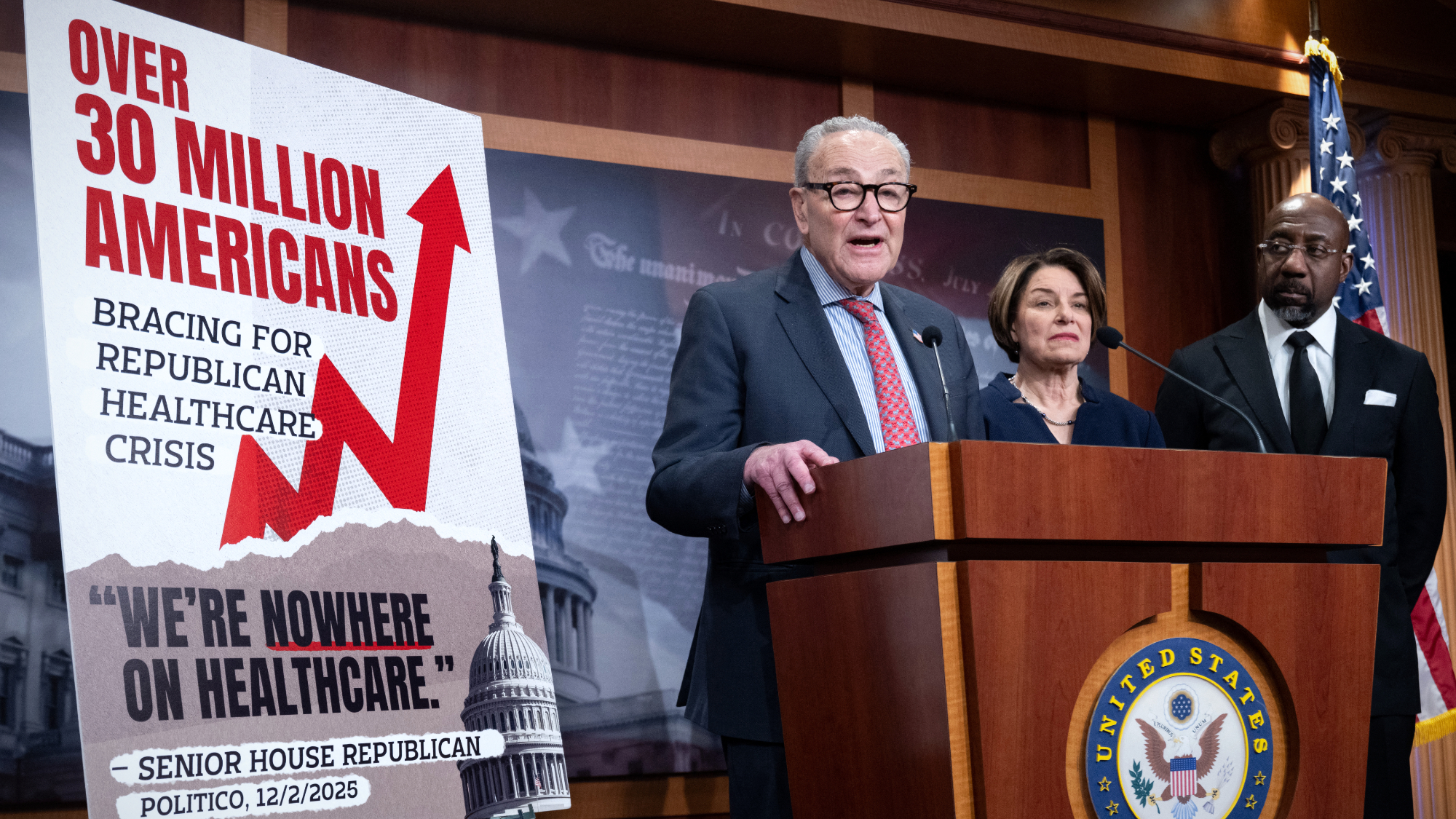Nobody should go bankrupt for COVID-19 treatment. Even anti-vaxxers.
Resist the temptation of schadenfreude


A free daily email with the biggest news stories of the day – and the best features from TheWeek.com
You are now subscribed
Your newsletter sign-up was successful
To understand the concept of schadenfreude, all you needed to do on Friday was read the replies to a tweet by NBC reporter Sahil Kapur. "Most private insurers are no longer waiving cost-sharing for COVID-19 treatment," Kapur had written, sharing a new report about how now "people seeking hospital care (who overwhelmingly are unvaccinated) will be required to pay."
"Hope you saved your pennies, anti-vaxxers," read one response. "No more subsidizing the non-vaccinated," trumpeted another. "Well, y'all were asking," quipped one more.
I get the frustration, I really do. But punishing the unvaccinated by saddling them with potentially crippling medical debt is not right, no matter how you feel about their decision.
The Week
Escape your echo chamber. Get the facts behind the news, plus analysis from multiple perspectives.

Sign up for The Week's Free Newsletters
From our morning news briefing to a weekly Good News Newsletter, get the best of The Week delivered directly to your inbox.
From our morning news briefing to a weekly Good News Newsletter, get the best of The Week delivered directly to your inbox.
There is no question that anti-vaxxers make the world more dangerous for everyone. The more cases of COVID-19 that circulate in a population, the more opportunity there is for the virus to mutate into vaccine-resistant strains. Hospitals in America's hotspots are filled with unvaccinated patients who have a preventable illness, making it so people who aren't voluntarily ill or hurt can't get treatment. And it will probably be years before we grasp the toll that the current COVID-19 surge is having on medical professionals' mental health.
But in spite of all that, it's ghoulish to celebrate the news that people will inevitably go bankrupt for their treatment for COVID-19. Everyone deserves health care regardless of the decisions they've made in their life; it's why we admit people to hospitals when they're sick or hurt, rather than allow them to die in the streets. The fact that America has a health care system where insurers are allowed to arbitrarily waive or impose costs is a symptom of a deeply broken program, and one that leaves open the door to denying patients affordable coverage for reasons as elective as drinking socially, as trivial as having acne, or as predetermined as being born with a female body.
We need to take a bigger-picture view, also, of whose "fault" it is when an anti-vaxxer gets sick. Should punishment really be prescribed to one individual when it was our government's failure to take the pandemic seriously in its early stages that led to COVID's uniquely unchecked proliferation in our nation? Can an anti-vaxxer's worldview be separated from President Trump's lies to the American people about the severity of the disease, or the reckless partisan politicizing of the vaccine? Doesn't the Biden administration also hold some responsibility for not effectively reaching vaccine skeptics? And while it is extremely unlikely that a fully-vaccinated person will be hospitalized with COVID-19, it is not unheard of (indeed, statistically it makes sense that the more people who are vaccinated, the more it will be vaccinated people in hospitals) — so are we okay with those people getting slammed with medical debt by a policy intended to "punish" the anti-vaxxers?
It's hard to feel sorry for the thousands of unvaccinated people who are falling sick when the vaccine is free, and proof of its safety and effectiveness is readily available. But gleefully applauding one of America's most disgraceful systems isn't the move. If the pandemic ought to have taught us anything, it's that there is a more humane way to treat the sick in this country — no matter who those sick are.
A free daily email with the biggest news stories of the day – and the best features from TheWeek.com
Jeva Lange was the executive editor at TheWeek.com. She formerly served as The Week's deputy editor and culture critic. She is also a contributor to Screen Slate, and her writing has appeared in The New York Daily News, The Awl, Vice, and Gothamist, among other publications. Jeva lives in New York City. Follow her on Twitter.
-
 The EU’s war on fast fashion
The EU’s war on fast fashionIn the Spotlight Bloc launches investigation into Shein over sale of weapons and ‘childlike’ sex dolls, alongside efforts to tax e-commerce giants and combat textile waste
-
 How to Get to Heaven from Belfast: a ‘highly entertaining ride’
How to Get to Heaven from Belfast: a ‘highly entertaining ride’The Week Recommends Mystery-comedy from the creator of Derry Girls should be ‘your new binge-watch’
-
 The 8 best TV shows of the 1960s
The 8 best TV shows of the 1960sThe standout shows of this decade take viewers from outer space to the Wild West
-
 A running list of everything Donald Trump’s administration, including the president, has said about his health
A running list of everything Donald Trump’s administration, including the president, has said about his healthIn Depth Some in the White House have claimed Trump has near-superhuman abilities
-
 ‘The security implications are harder still to dismiss’
‘The security implications are harder still to dismiss’Instant Opinion Opinion, comment and editorials of the day
-
 House approves ACA credits in rebuke to GOP leaders
House approves ACA credits in rebuke to GOP leadersSpeed Read Seventeen GOP lawmakers joined all Democrats in the vote
-
 The billionaires’ wealth tax: a catastrophe for California?
The billionaires’ wealth tax: a catastrophe for California?Talking Point Peter Thiel and Larry Page preparing to change state residency
-
 ‘This is a structural weakening of elder protections’
‘This is a structural weakening of elder protections’Instant Opinion Opinion, comment and editorials of the day
-
 Bari Weiss’ ‘60 Minutes’ scandal is about more than one report
Bari Weiss’ ‘60 Minutes’ scandal is about more than one reportIN THE SPOTLIGHT By blocking an approved segment on a controversial prison holding US deportees in El Salvador, the editor-in-chief of CBS News has become the main story
-
 House GOP revolt forces vote on ACA subsidies
House GOP revolt forces vote on ACA subsidiesSpeed Read The new health care bill would lower some costs but not extend expiring Affordable Care Act subsidies
-
 Senate votes down ACA subsidies, GOP alternative
Senate votes down ACA subsidies, GOP alternativeSpeed Read The Senate rejected the extension of Affordable Care Act tax credits, guaranteeing a steep rise in health care costs for millions of Americans
